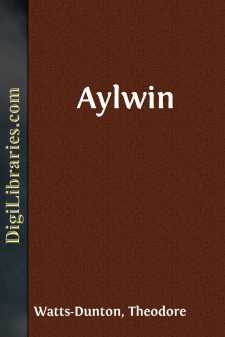Categories
- Antiques & Collectibles 13
- Architecture 36
- Art 48
- Bibles 22
- Biography & Autobiography 813
- Body, Mind & Spirit 142
- Business & Economics 28
- Children's Books 17
- Children's Fiction 14
- Computers 4
- Cooking 94
- Crafts & Hobbies 4
- Drama 346
- Education 46
- Family & Relationships 57
- Fiction 11829
- Games 19
- Gardening 17
- Health & Fitness 34
- History 1377
- House & Home 1
- Humor 147
- Juvenile Fiction 1873
- Juvenile Nonfiction 202
- Language Arts & Disciplines 88
- Law 16
- Literary Collections 686
- Literary Criticism 179
- Mathematics 13
- Medical 41
- Music 40
- Nature 179
- Non-Classifiable 1768
- Performing Arts 7
- Periodicals 1453
- Philosophy 64
- Photography 2
- Poetry 896
- Political Science 203
- Psychology 42
- Reference 154
- Religion 513
- Science 126
- Self-Help 84
- Social Science 81
- Sports & Recreation 34
- Study Aids 3
- Technology & Engineering 59
- Transportation 23
- Travel 463
- True Crime 29
Old Familiar Faces
Categories:
Description:
Excerpt
INTRODUCTION.
For some years before his death it was the intention of Theodore Watts-Dunton to publish in volume form under the title of ‘Old Familiar Faces,’ the recollections of his friends that he had from time to time contributed to The Athenæum. Had his range of interests been less wide he might have found the time in which to further this and many other literary projects he had formed; but he was, unfortunately, very slow to write, and slower still to publish. His long life produced in published works a number of critical and biographical essays contributed to periodicals and encyclopædias, a romance (‘Aylwin’), a sheaf of poems (‘The Coming of Love’), two of the most stimulating critical pronouncements that his century produced (‘Poetry’ and ‘The Renascence of Wonder’), a handful of introductions to classics—and that is all.
Only those who were frequent visitors at “The Pines” can form any idea of his keen interest in life and affairs, which seemed to grow rather than to diminish with the passage of each year, even when 81 had passed him by. At his charmingly situated house at the foot of Putney Hill, he lived a life of as little seclusion as he would have lived in Fleet Street. Here he received his friends and acquaintances, and there was little happening in the world outside with which he was unacquainted.
He was a tremendous worker, and only a few months before his death he wrote of “the enormous pressure of work” that was upon him, telling his correspondent that he had “no idea, no one can have any idea, what it is. I am an early riser and breakfast at seven, and from that hour until seven in the evening, I am in full swing of my labours with the aid of two most intelligent secretaries.”
To outlive his generation is, perhaps, the worst fate that can befall a man; but this cannot truly be said of Theodore Watts-Dunton, who seemed to be of no generation in particular. His interest in the life of the twentieth century, a life so different from that of his own youth and early manhood, was strangely keen and insistent. Sometimes in talking of his great contemporaries, Tennyson, Meredith, Swinburne, Rossetti, Morris, Matthew Arnold, Borrow, there would creep into his voice a note of reminiscent sadness; but it always seemed poetic rather than personal. It may be said that he never really grew up, that his spirit never tired. His laugh was as youthful as the hearty “My dear fellow,” with which he would address his friends.
His most remarkable quality was his youth. His body had aged, his voice had shrunk; but once launched into the subject of literature, Greek verse in particular (he regarded the Attic tongue as the peculiar vehicle for poetic expression), he seemed immediately to become a young man. When quoting his favourite passage from Keats, his voice would falter with emotion.
Charm’d magic casements, opening on the foam
Of perilous seas, in faery lands forlorn.
These lines he regarded as the finest in English poetry.
He possessed the great gift of conversation. Every subject seemed to develope quite naturally out of that which had preceded it, and although in a single hour he would have passed from Æschylus and Sophocles to twentieth-century publishers, there was never any break or suspicion of a change of topic. Seated on the sofa in the middle of his study, with reminders of his friendship with Rossetti gazing down upon him from the walls, he welcomed his friends with that almost boyish cordiality that so endeared him to their hearts. If they had been doing anything of which the world knew, he would be sure to have heard all about it. His mind was as alert as his memory was remarkable; but above all he was possessed of a very real charm, a charm that did not vanish before the on-coming years. It was this quality of interesting himself in the doings of others that retained for him the friendships that his personality and cordiality had created.
Few men have been so richly endowed with great friendships as Theodore Watts-Dunton: Swinburne, the Rossettis, William Morris, Matthew Arnold, Tennyson, Borrow, Lowell, Latham, men of vastly dissimilar temperaments; yet he was on terms of intimacy with them all, and as they one by one passed away, to him was left the sad duty of giving to the world by far the most intimate picture of their various personalities. There was obviously some subtle quality in Watts-Dunton’s nature that not only attracted to him great minds in the world of art and letters; but which seemed to hold captive their affection for a lifetime. Even an instinctive recluse such as Borrow, a man almost too sensitive for friendship, found in Watts-Dunton one whose capacity for friendship was so great as to override all other considerations. Watts-Dunton was “the friend of friends” to Rossetti, who wished to make him his heir, and was dissuaded only when he saw that to do so would pain his friend, who regarded it as an act of injustice to Rossetti’s own family. During his lifetime Swinburne desired to make over to him his entire fortune. The man to whom these tributes were paid was undoubtedly possessed of some rare and strange gift.
...



